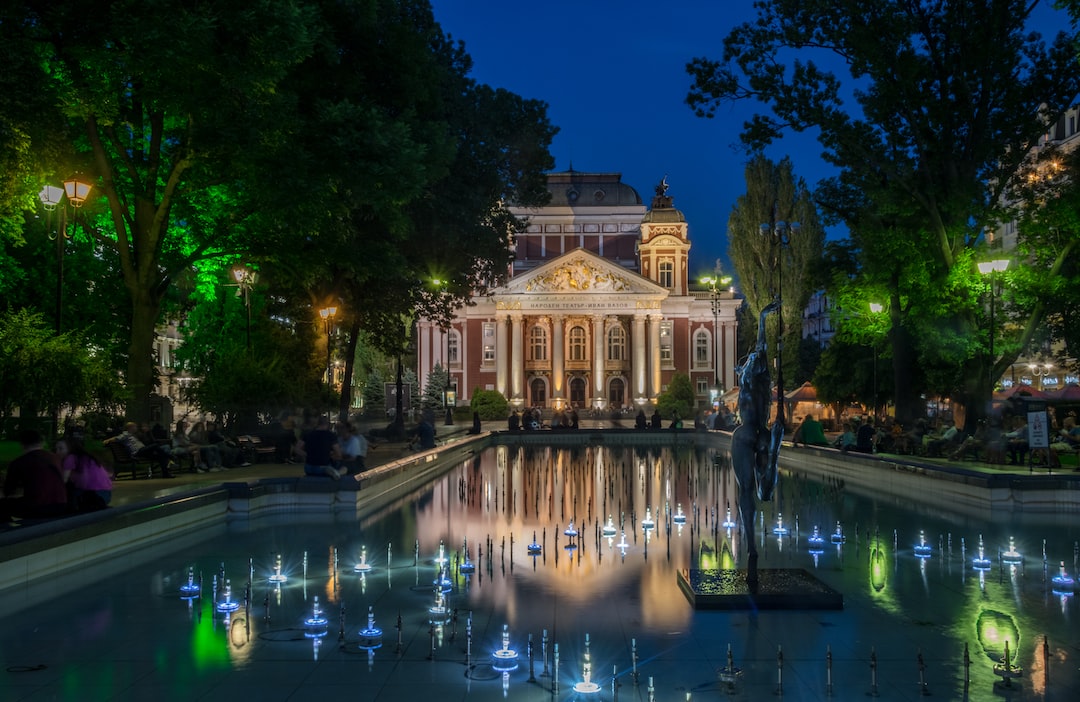Planning a wedding can be an exciting yet overwhelming experience.
Whether you are looking to incorporate some of your own traditions or embrace something new, the Bulgarian culture offers a wealth of unique and beautiful wedding customs that will add extra flair to your special day.
From engagement rituals to post-wedding celebrations, learn more about the many different Bulgarian wedding traditions available so you can make sure every moment is memorable.
Let’s explore what this culture offers and discover how these charming customs can become part of your nuptials.
Bulgarian Wedding Traditions
Engagement Traditions
Engagement Traditions in Bulgaria are a special part of the culture and can be seen as an important step toward marriage.
1. The Proposal
In Bulgaria, a typical marriage proposal usually involves giving a ring to the person being proposed to.
The box containing the ring is often presented in a poem, special message, or symbol that represents the couple’s relationship.
After the proposal is accepted, it is traditional for the couple to go to a nearby church, pray together and ask God’s blessing on their forthcoming union.
The engagement day is often celebrated with friends and family by exchanging gifts such as symbolic jewelry pieces and sweets like the traditional Bulgarian wedding cookie called “keifli.”
The guests of honor are given gifts such as wine and fine dinnerware.
On this day, it is expected that the newly engaged couple will exchange rings and publicly announce their upcoming marriage.
2. Exchange of Rings
The exchange of rings is a symbol of commitment between two people, usually done in front of family and friends. It is traditional for both the bride and groom to wear their engagement rings until the wedding day when they will switch them out for their wedding bands.
3. Blessing of the Rings
After exchanging rings, it is customary for a priest or elder in attendance to bless them with holy water or oil. This blessing signifies that God has blessed this union and wishes only good things upon it.
In Bulgarian tradition, the bride’s dowry consists of items such as jewelry, clothing, and household items given to her by her parents before she gets married. This dowry is meant to provide financial security for her future husband and children if needed.
Engagement traditions are a meaningful part of the Bulgarian wedding experience, and are often celebrated with much joy and enthusiasm. As we move on to Wedding Ceremony Traditions, let us explore the various rituals that make up this special day.
4. Pre-Wedding Celebrations
In Bulgaria, bachelorette parties are known as the “den” or “hen night,” which is an important part of the wedding celebration.
Unmarried female relatives and friends gather to celebrate the bride-to-be and give her gifts before she joins her partner as a married woman.
The party usually begins with dinner at a restaurant, followed by karaoke or dancing in a club.
Games are also played at the den, such as guessing who among the guests will get married next or asking them to name the groom’s best qualities.
Bulgarians often end their bachelorette parties by encouraging the bride-to-be to light candles in her future home and wish for luck in her marriage life.
Bulgarian grooms traditionally have bachelor parties known as the “stag night” or “men’s night.”
The groom is typically celebrated by his friends and family at a restaurant or club with plenty of food and drinks.
During this celebration, the groom will receive gifts from his loved ones that symbolize good luck in his upcoming marriage.
Games are also played at the stag night, usually involving trivia about the newlyweds or guessing which guests will get married next.
It is also customary for the groom to thank his friends for all they have done to support him.
Wedding Ceremony Traditions
In Bulgaria, wedding ceremonies are steeped in tradition and symbolism.
The procession to the church is led by musicians playing traditional music while guests shower the couple with rice or wheat for fertility and prosperity.
This symbolizes good luck and wishes for a prosperous future together.
5. Venue
Typically, a Bulgarian wedding occurs either in a church or in the home of one of the couple’s families.
In some cases, an outdoor location is also suitable, such as a beach or park.
The venues are usually decorated with floral arrangements and other decorations that reflect the bride and groom’s personalities.
Before the ceremony, traditional Bulgarian music is played while guests wait and feast on delicious food.
During the ceremony, both parents give their blessing to the newlyweds, who may exchange rings or flowers.
Afterward, there is typically a reception with dancing, live music, and plenty of food for everyone to enjoy.
6. The crowning of the bride and groom
This is another essential part of Bulgarian weddings. During this ritual, two wreaths made from flowers are placed on both the bride’s and groom’s heads as they kneel before each other.
This signifies their union as husband and wife in front of God, family, friends, and community members alike.
7. Vows
Following the exchange of vows, couples partake in a ritual of breaking bread together as an emblem of unity.
This is followed by them drinking wine from a shared cup, symbolizing that no matter what happens, they will always be there for one another.
Just like how sharing food does not make it any less filling but instead makes it more enjoyable when enjoyed with someone else.
8. Tossing the Bouquet
Finally, the tossing of bouquets traditionally takes place at receptions after the ceremony has concluded.
The bride tosses her bouquet over her shoulder into a crowd of single women who all try to catch it – whoever catches it is said to be next in line for marriage.
This is a tradition across many cultures worldwide.
The groom will often throw his garter belt which was believed to bring luck to single men who caught them, as they would soon find a wife after marriage.
Reception Traditions
9. Music and Dancing
Bulgarian receptions are often lively affairs filled with traditional music and dancing.
Guests can join in the fun by participating in “The Money Dance”, where money is pinned onto clothing items worn by either the bride or groom for good luck in their marriage.
This ritual dates back centuries and is still popular today.
Traditional Bulgarian music and dancing are also part of these celebrations, with many couples choosing songs that have special meaning to them or reflect their culture and heritage.
From traditional folk tunes like horo dances, which involve intricate footwork patterns, to more modern pop songs – there’s something suitable for everyone.
These customs have been passed down through generations and remain popular today among Bulgarians all over the world, making any wedding celebration truly unique.
Whether you choose one or all of these traditions at your own wedding reception, it is sure to make your special day even more memorable.
It is customary for Bulgarians to have a first dance at their wedding.
This often takes place after the ceremony, after the newlyweds have been blessed by their parents and exchanged rings or flowers.
A traditional Bulgarian folk song may be played while the couple takes to the floor, or they may choose a special song.
Other members of the wedding party can also join in, celebrating this happy occasion with dancing and music.
10. Food and Drink
At a Bulgarian wedding, guests can expect to enjoy a variety of traditional foods and drinks.
Popular dishes include sarmi (stuffed grape leaves), kavarma (a stew of pork or beef with vegetables), roasted chicken, grilled fish, lamb shish kebab, and banitsa (phyllo pastry filled with cheese).
There is usually a selection of local wines, rakia (fruit brandy), and beer to accompany the meal.
For dessert, it is common for the bride and groom to serve baklava, pita bread with honey and nuts, as well as kozunak (sweet bread with dried fruit).
Post-Wedding Traditions
Once the wedding festivities have come to an end, there are still more traditions that follow.
11. The Honeymoon
Honeymoon celebrations known as Mesni Zagovezni involve singing songs outside of newlyweds’ homes while they enjoy their first night together as husband and wife inside.
This custom is meant to bring them good luck throughout their marriage journey.
Visiting relatives (Pokani) involves visiting close family members who could not attend the wedding ceremony; gifts are exchanged during this visit which serves as an additional way to show appreciation for those who could not be present at the wedding itself.
It’s a great way for couples to thank their families and friends in person after all of the hard work put into making their special day happen.
12. Gift giving
Gift giving (Darvane) is another post-wedding tradition that involves sending gifts from both sides of families after weddings.
These gifts can range from food items such as honey or jam to household items like towels or bedding sets – anything that will help make life easier for the couple starting out on a new adventure together.
Receiving these thoughtful presents can add up over time and create lasting memories between loved ones long after the celebration ends.
These post-wedding traditions may seem small but they play an important role in helping couples transition into married life with grace and joy.
From singing songs outside your home on your honeymoon night to receiving heartfelt presents from family members – each moment helps build strong foundations for a lifetime of love and happiness ahead.
13. Bulgarian Wedding Superstitions
In Bulgaria, there are several superstitions related to weddings.
It is believed that if someone visits the bride on the morning of her wedding day, it will bring bad luck and cause obstacles in the upcoming marriage.
Rain on the wedding day is also considered a sign of good luck and fertility, as it symbolizes tears of joy for the couple’s union.
Additionally, it is believed that the bride must wear something new and something old, something borrowed and something blue, to ensure her future happiness.
Another common superstition states that it is vital for the newlyweds to take bread over their heads before entering their home as husband and wife for the first time to be blessed with prosperity.
Conclusion
Bulgarian wedding traditions are steeped in history and culture, making them a unique and beautiful way to celebrate your special day.
From the engagement traditions of giving gifts to the post-wedding tradition of sending off the newlyweds with good wishes, these customs will add an extra layer of meaning to your big day.
Whether you incorporate all or just some Bulgarian wedding traditions into your ceremony, they will make it even more memorable for everyone involved.




